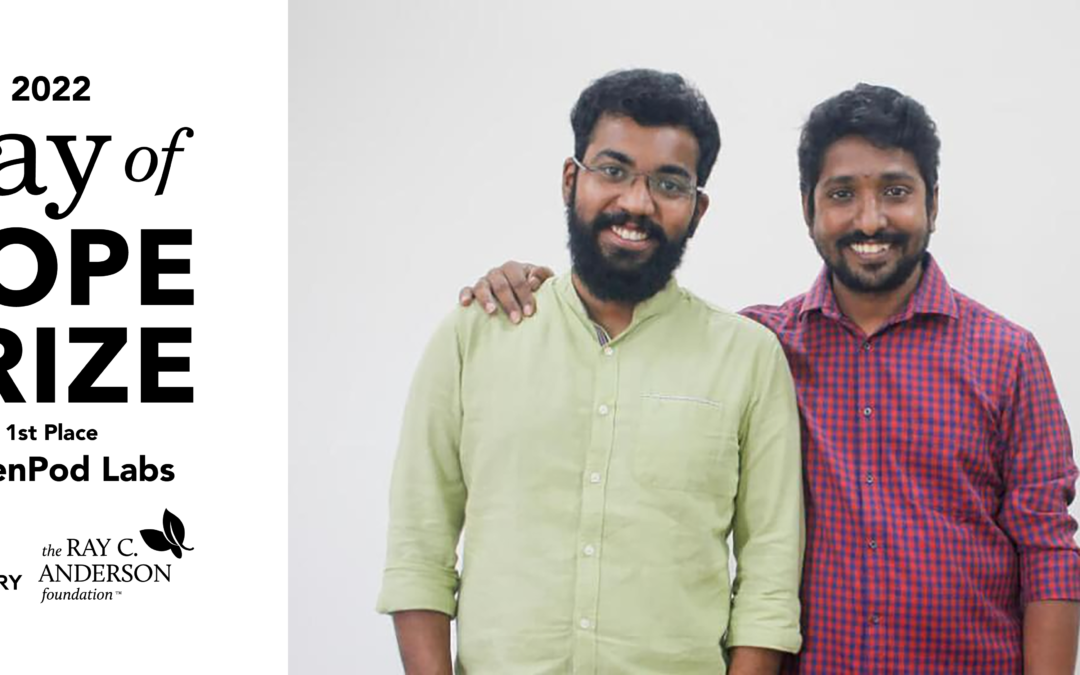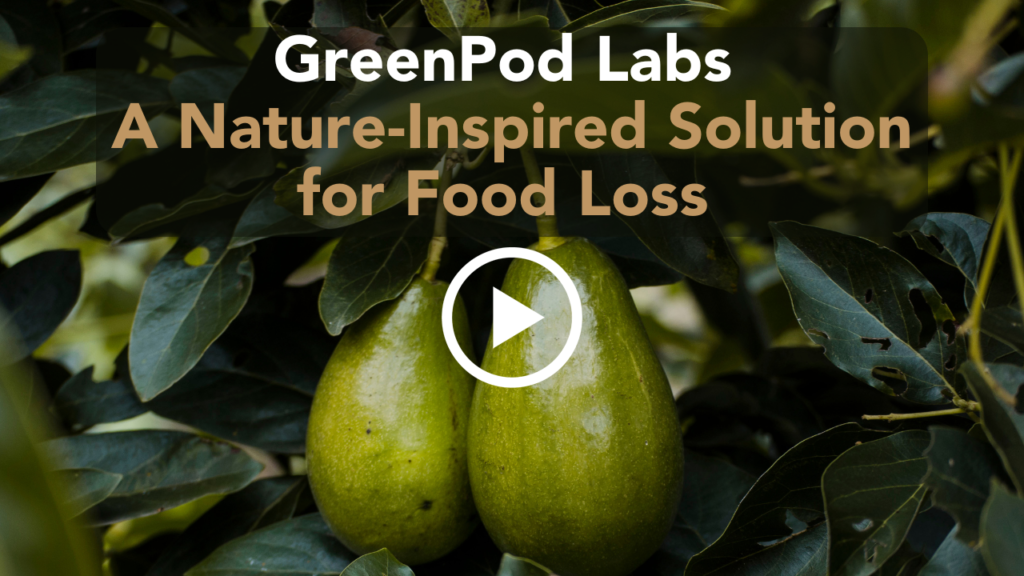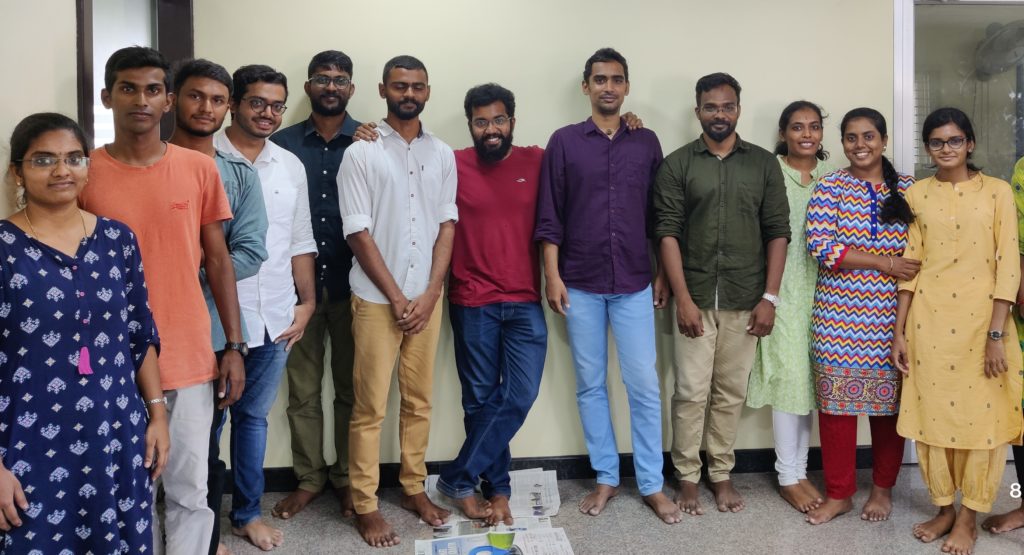It’s not enough to be less bad in a world depending on immediate, radical social change. From feeding 8 billion people and adapting to a warming climate, to breaking down harmful plastics and replacing toxic chemicals with safe alternatives, we need human ingenuity to step up innovation. We need to create better solutions aligned with the natural world. We need a Ray of Hope.
“I’ve followed the underlying science for years and dreamt of a day when we could mimic plant alarm signals to reduce food waste, recreate nature’s smart surfaces with laser precision, create wind turbines as quiet as an owl in flight, repel water through structure rather than toxic PFAS, safely and thoroughly decompose plastics and recompose construction waste, mimic the bottom-up manufacture of nature’s lightweight-yet-strong materials, and keep harmful chemicals from entering our oceans, our municipal wastewaters, and our own skin. That day is here!” exclaims Janine Benyus, Co-founder of the Biomimicry Institute. “From nature’s blueprints, these companies are commercializing what our world so urgently needs—products that solve problems without creating new ones.”
This year’s Ray of Hope Prize program finalists, chosen from a field of 212 companies from 54 countries, demonstrate the paradigm-shifting promise of biomimicry. We are proud to support all these companies, and we are very excited to share more about the First and Second Place recipients that were chosen to represent 2022’s top-nature inspired startup companies.
By learning how fruits and vegetables naturally resist pest and fungal pathogens, GreenPod Labs showcases how learning from nature can solve both climate and societal problems.
About a third of all food produced goes to waste, and in countries like India, much of that waste occurs on the farm or during storage and transport of the food. GreenPod Labs’ product line works without the need for cold storage by integrating a deep understanding of crop physiology, effectively communicating with plants to activate their built-in defense mechanisms.
Their product can extend the shelf life of fruits and vegetables by 40 to 60% at ambient temperature and conditions. By focusing on markets in India and sub-Saharan Africa, this solution has the ability to solve some of the largest environmental and social challenges.
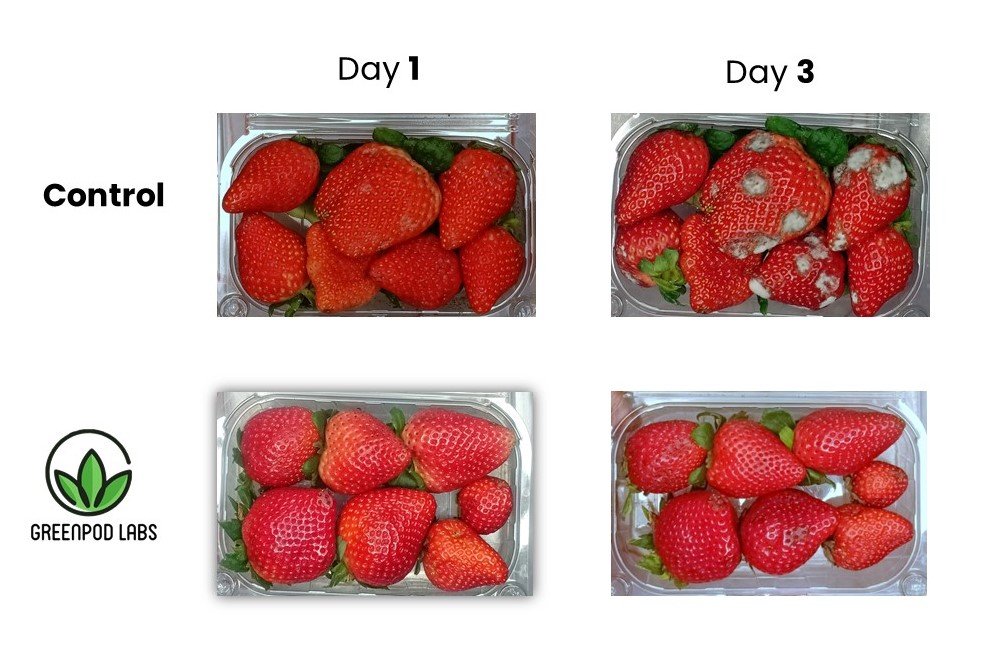
“I have always been very passionate about biomimicry and the ability to learn from nature to build a sustainable future,” says Deepak Rajmohan, CEO, GreenPod Labs. “Winning the Biomimicry Institute’s Ray of Hope Prize is a validation for our team’s efforts to learn from nature and build solutions to solve the global food loss problem. I strongly feel this would encourage more innovators and entrepreneurs to look at nature to solve the world’s most pressing problems. The competition also gave us an opportunity to interact and learn about biomimicry from other experts and startups. I’d like to thank Biomimicry Institute and the Ray C. Anderson Foundation for this opportunity.”
The GreenPod Labs team consists of 17 innovators passionate about solving the food waste and food loss problem and has over 30 years of combined research and operational experience in agriculture and food biotechnology. When plants get infected by abiotic or biotic stress, they release unique volatile compounds that act as signal molecules to activate the defense mechanism in the neighboring plant to protect itself. Each plant has a unique composition of these compounds for different stresses, and the biomimicry behind GreenPod Labs’ solution replicates the unique plant volatile fingerprint for each crop to protect the fruits and vegetables after harvest.
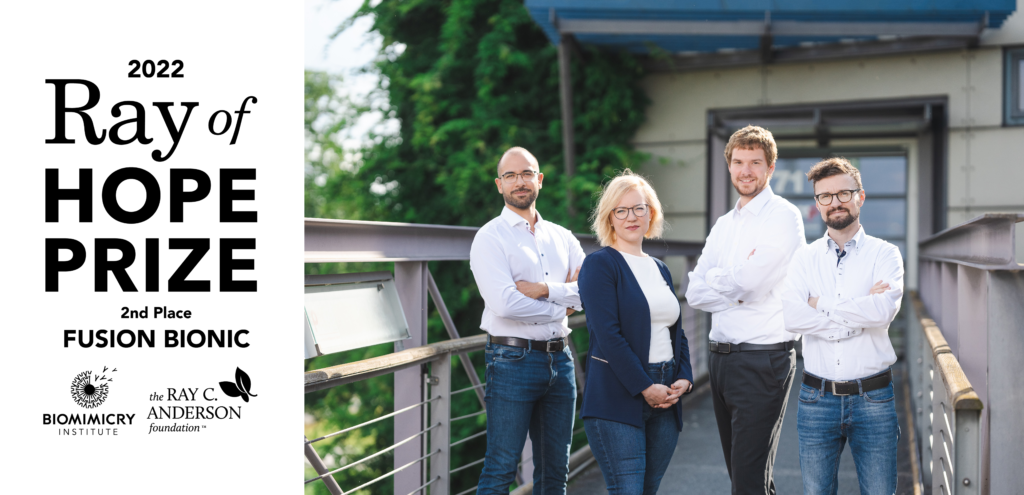
This year’s second place recognition goes to the German-based company Fusion Bionic, which has developed a cutting-edge laser technology capable of integrating biomimetic micro and nanostructures on a variety of material surfaces. Today’s surface finishing technologies rely largely on ecologically harmful manufacturing processes, such as chemical etching (e.g. consumer electronics), sand blasting (e.g. medical), and coating solutions (e.g photovoltaics). Fusion Bionic’s Direct Laser Interference Patterning (DLIP) technology enables functional surface texture solutions inspired by natural surface structures such as those found on lotus leaves, shark skin, and moth eyes, to name a few.
Video Credit: Tightlight Productions
“The Ray of Hope Prize recognition is more than just an award for us as a team, it is one of the highest honors we can receive for our vision towards more sustainability in production processes using biomimicry,” says Tim Kunze, CEO and Managing Director of Fusion Bionic. “Learning from nature is more than just copying things that have evolved over millions of years. We use cutting-edge laser technology to harness effects from nature for human use.”
“We are convinced that this concentrated innovative power as a synergy between human technology and nature’s example will make numerous technical innovations possible in the future,” adds Kunze. “The Ray of Hope Prize encourages us to pursue this path even more intensively. Thanks to the Biomimicry Institute, as well as the Ray C. Anderson Foundation, for giving visibility to the extremely important work of nature-inspired startups.”
Learn more about the Ray of Hope Prize nature-inspired solutions, and read the news announcement about this year’s Ray of Hope Prize recipient. For the bio-inspired startups out there making an impact, stay tuned for applications opening for a new cohort in 2023.

